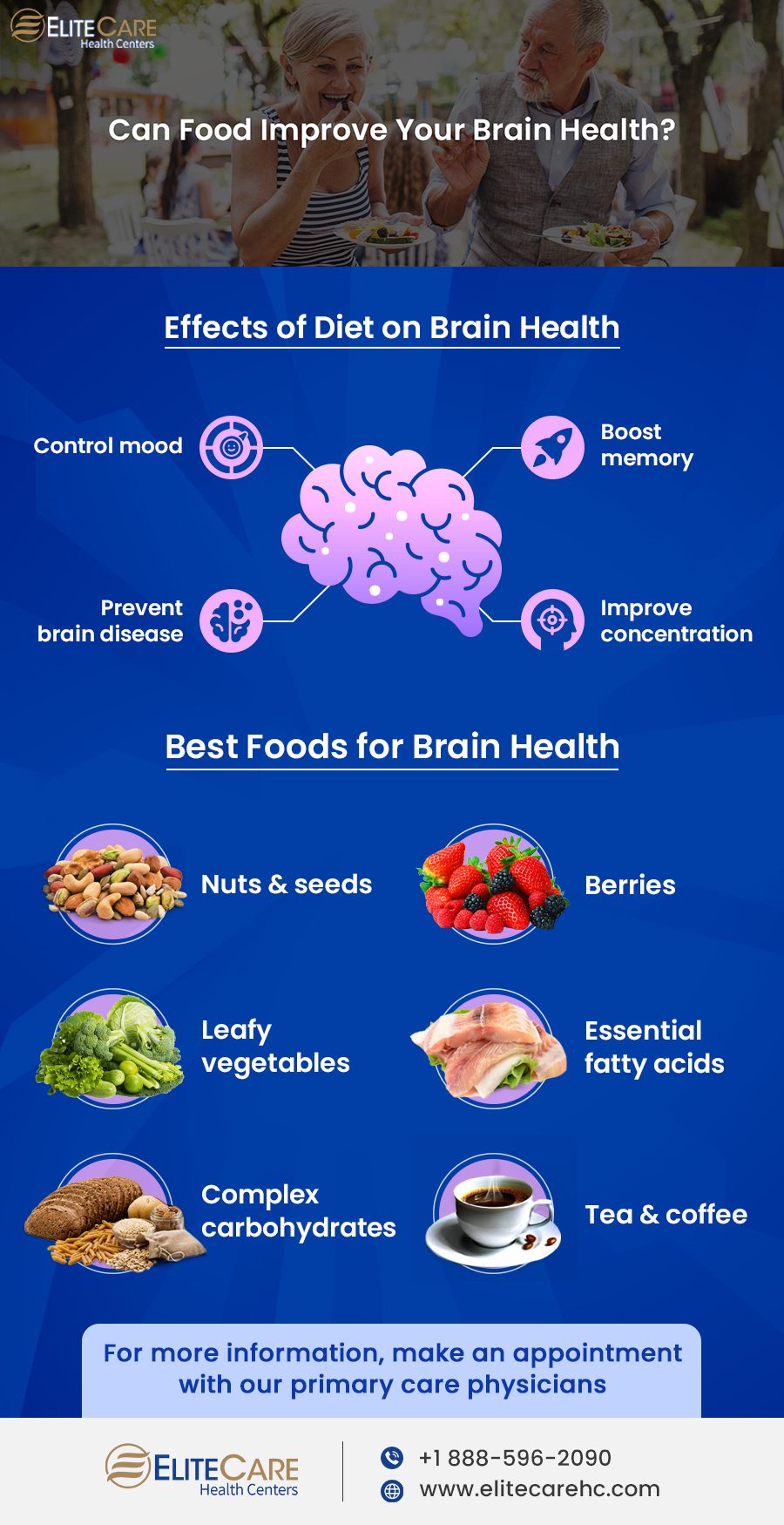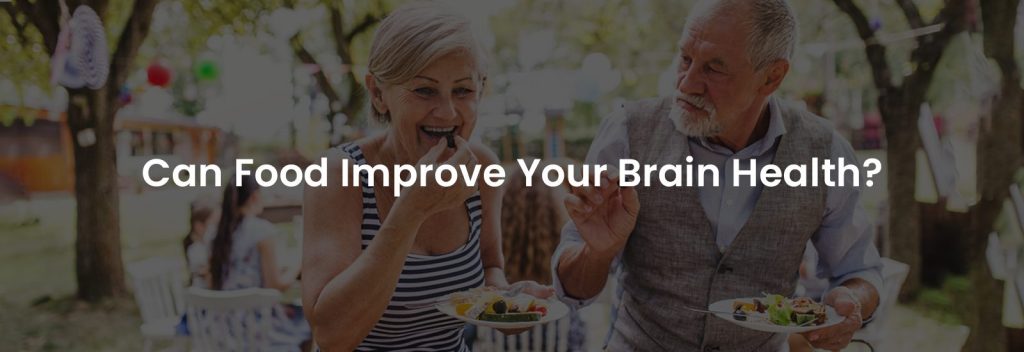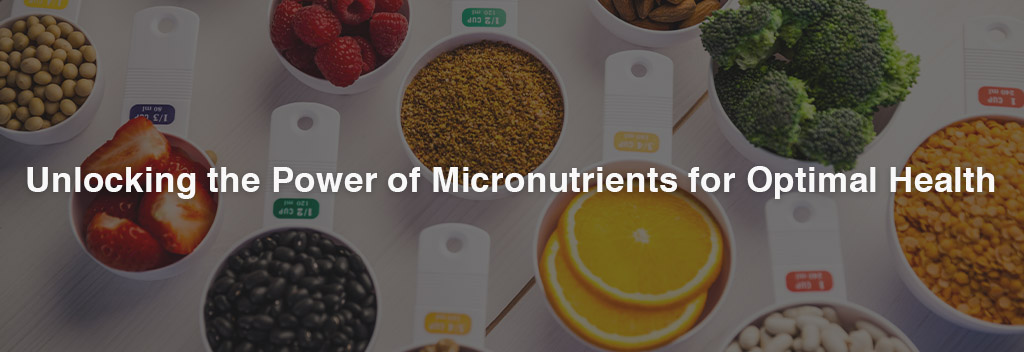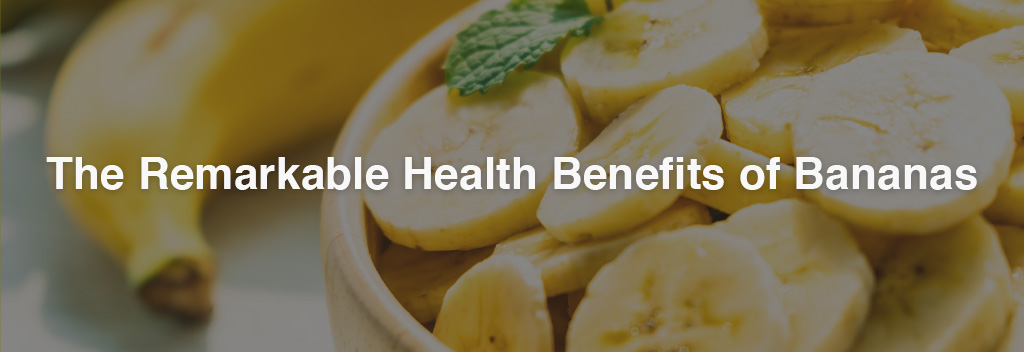
A healthy brain is the key to living a fulfilling and balanced life. It is easier for senior citizens to communicate better, think logically, control emotions, solve problems, and manage stress if their brain is healthy. Approximately a third* of the total U.S. population aged 60 and over suffers from mild to severe cognitive impairment. One of the primary reasons behind this is poor diet and lack of proper nutrition. In order to prevent cognitive decline in the elderly, it is essential that they consume brain-healthy foods.
The Effects of Diet on Brain Health
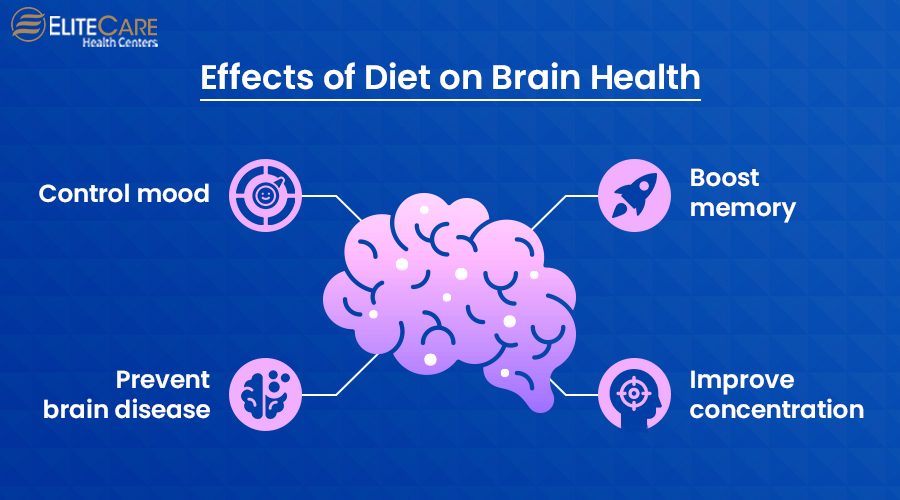
Researchers over the past five years have concluded that food and nutrition have a direct correlation with brain health. While omega-3 fatty acids-rich foods can support cognitive processes, diets high in saturated fat can increase the risk of neurological dysfunction. Similarly, a limited amount of sugar is also needed for the brain to function well. Here are a few ways foods can directly impact your brain health.
Boost memory
The human brain requires sugars, iron, and several other vitamins like vitamin B complex and vitamin E to store and recall memories. While multivitamin supplements can be an easy way to consume these nutrients, whole foods offer increased absorption and a wide range of essential nutrients. To improve memory power in the elderly, add more fresh fruits, and vegetables which are rich in folic acid.
Improve concentration
A continuous supply of glucose (sugar) is essential to the functioning of the human brain. Empty or partially filled stomachs may often make seniors feel tired, depleted, and weak. Intake of carb-rich foods is required for a healthy brain. Moreover, the brain needs enough oxygen to concentrate. Iron is an essential nutrient as it ensures the transfer of oxygen from the lungs to the tissues. For this reason, add plenty of iron-rich foods to the diet to ensure an adequate iron supply.
Control mood swings
Prevent brain disease
Best Foods for Brain Health
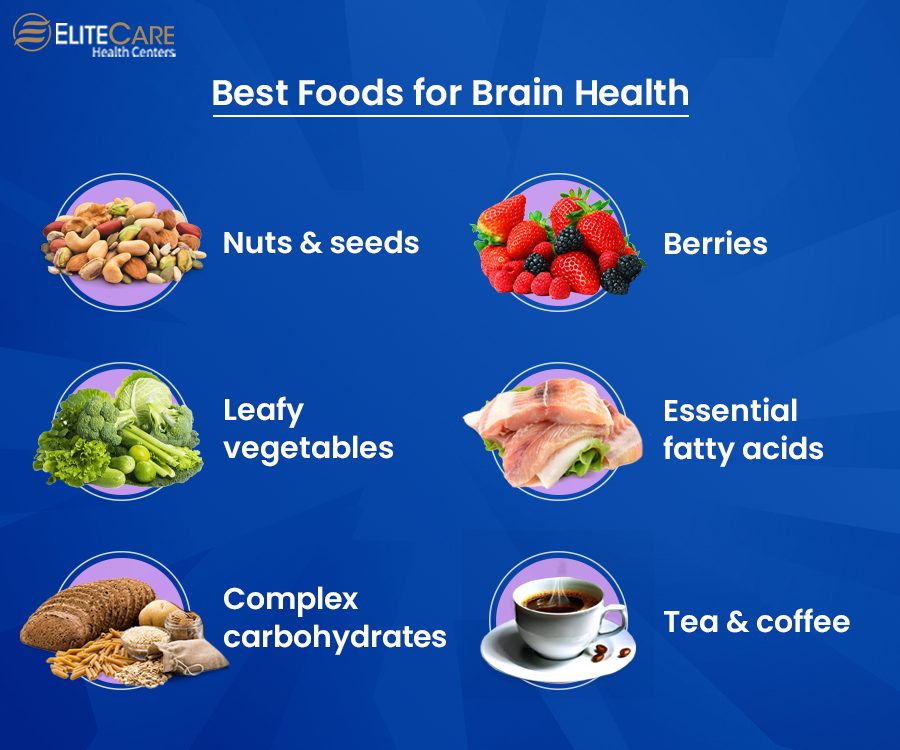
Nutritionists and primary care services emphasize a healthy dietary pattern that includes a lot of fruits, vegetables, legumes, and whole grains to improve brain health. The most beneficial foods for brain health are the same ones that protect your heart and blood vessels. Here are some brain-healthy foods to add to the diet of elderly people.
Nuts and seeds
As we age, our brain cells start losing the ability to repair and regenerate. Therefore, increased oxidative stress can lead to rapid brain aging. Nuts and seeds nourish the brain and slow down the process of aging. It is because they provide abundant antioxidants like vitamin E. It prevents cell damage from free radicals and minimizes oxidative stress on the brain. Besides, vitamin E also improves cognitive efficiency and reduces the risk of neurodegenerative conditions like Alzheimer’s disease.
Some of the nuts and seeds that are rich in vitamin E are:
- Walnuts
- Almonds
- Hazelnuts
- Flax seeds
- Sunflower seeds
- Chia seeds
Berries
A rich source of flavonoids, berries are considered potent antioxidants. Berries can improve cognitive function by reducing stress, inflammation, and brain cell damage. Furthermore, berries can also boost learning and memory power by enhancing brain cell plasticity.
Some of the berries to add to your diet plan are:
- Blackberries
- Strawberries
- Blueberries
- Gooseberries
- Mulberries
Leafy vegetables
Studies have suggested that adding one serving or 1/2 cup cooked or one cup raw of green leafy vegetables to your diet every day may significantly reduce the risks of memory loss. The folate, beta-carotene, and vitamin K present in the leafy, green vegetables can help slow cognitive decline in seniors.
A few leafy vegetables to incorporate into your diet are:
- Kale
- Spinach
- Swiss chard
- Broccoli
- Brussels sprouts
Essential fatty acids
EPA and DHA, the two essential fatty acids for brain health and function, cannot be produced in the human body. Deficiency in these fatty acids can affect brain development and result in cognitive impairment. Therefore, it is crucial to get them from food sources.
Here are a few ways to add these fatty acids to your regular diet:
- Cooking in safflower, sunflower, flaxseed, walnut, soybean, or sesame oil
- Eat soybeans and soybean products such as tofu and soymilk
- Add two to three servings of oily fish such as herring, salmon, sardines, oysters, trout, tuna, or crab a week to your diet
Complex carbohydrates
The human brain needs a steady source of energy which is derived from glucose. Whole grains, beans, and legumes are healthy sources of complex carbohydrates to supply enough glucose to the body. This steady supply of glucose ensures better brain function and prevents confusion, foggy thinking, and lack of concentration.
A few sources of complex carbohydrates are:
- Oatmeal
- Whole grain bread
- Brown rice
- Beans, lentils, and peas
Tea and coffee
Green, black, and white teas contain different flavonoids or plant antioxidants that can protect the brain cells from free radical damage. Besides, they can also increase blood flow to the brain and improve concentration power. On the other hand, drinking coffee in a limited quantity can help with mental alertness.
Diet Plans That Can Help Maintain Optimal Brain Health
1. Mediterranean diet
This diet plan emphasizes fruits, vegetables, whole grains, legumes, nuts, seeds, and healthy fats like olive oil. It includes moderate amounts of fish, poultry, and dairy while limiting red meat and processed foods. The Mediterranean diet incorporates an increased number of plant-based foods along with moderate alcohol consumption (usually red wine) to reduce inflammation and support cognitive health.
2. DASH diet
The Dietary Approaches to Stop Hypertension (DASH) diet focuses on reducing sodium intake and promoting a well-rounded diet rich in fruits, vegetables, whole grains, lean proteins, and low-fat dairy products. It is known for its heart-healthy benefits and has also been linked to better cognitive function and a reduced risk of dementia.
3. MIND diet
Commonly known as MIND, the Mediterranean-DASH Diet Intervention for Neurodegenerative Delay diet combines elements of the Mediterranean and DASH diets with specific emphasis on foods beneficial for brain health. It includes green leafy vegetables, berries, nuts, whole grains, fish, poultry, olive oil. It encourages a limited intake of red meat, butter, cheese, pastries, and fried food. The MIND diet has shown promising results in reducing the risk of Alzheimer’s disease and maintaining cognitive function.
Although these diet plans are associated with brain health benefits, results may vary for individuals. People, especially those with specific health conditions or dietary restrictions, should always consult a healthcare professional or registered dietitian before making significant dietary changes.
Takeaway
It is crucial to balance a diet plan by including a combination of the foods you like and the ones good for your health.
Always consult a primary care physician and a dietitian to plan your dietary routine to avoid any additional health complications. Proper food and nutrition can ensure healthy aging for the elderly. For any queries or concerns about dietary changes, contact EliteCare HC, one of the best medical clinics in Florida that offers a wide range of senior care services.
* Urban, P. (2023). 1 in 10 Older Americans Have Dementia. AARP.
